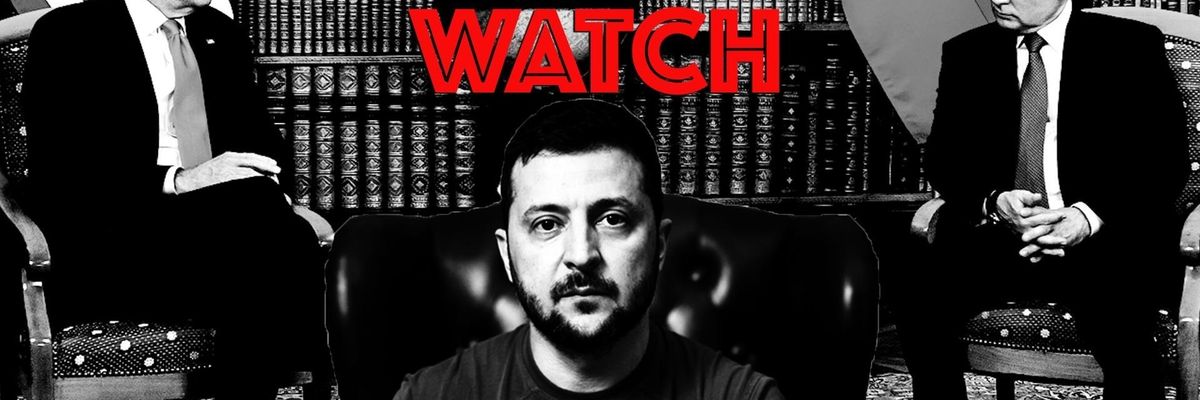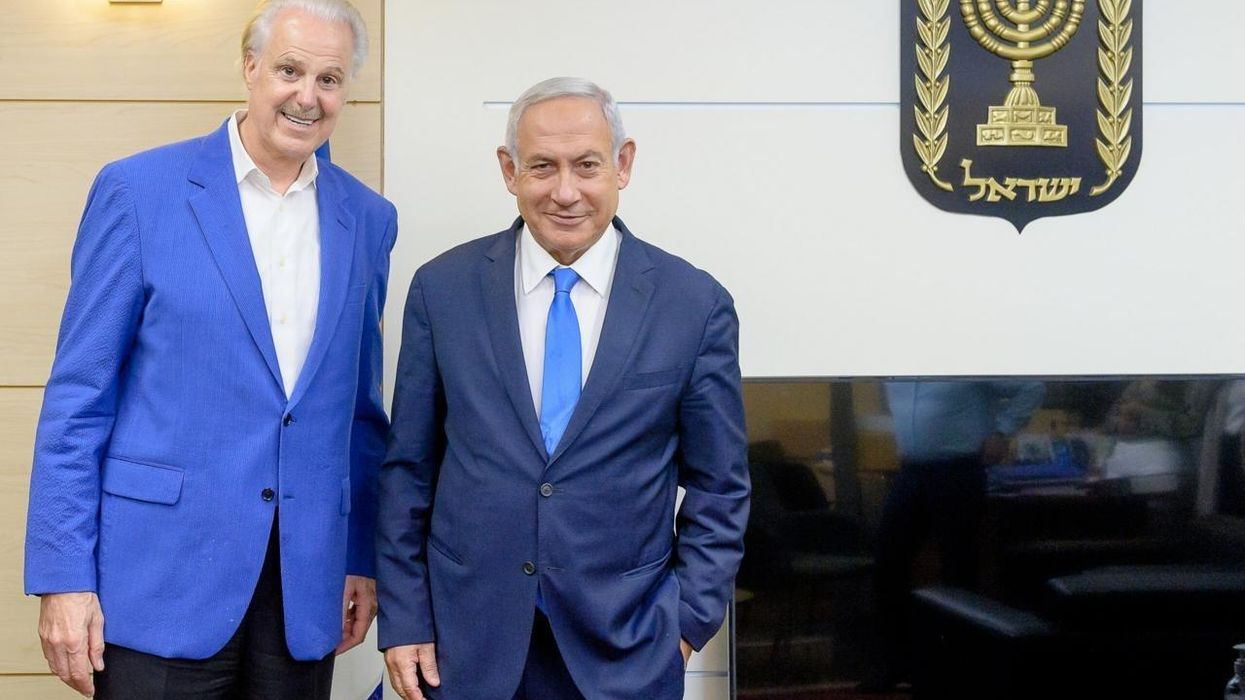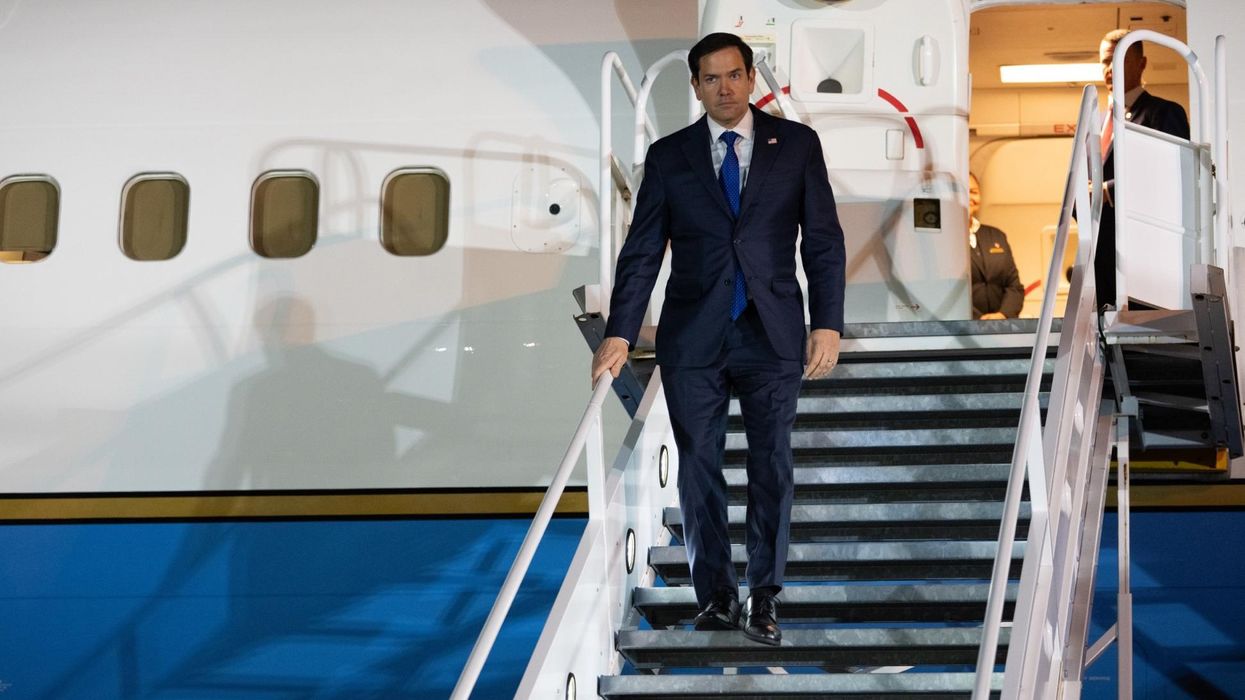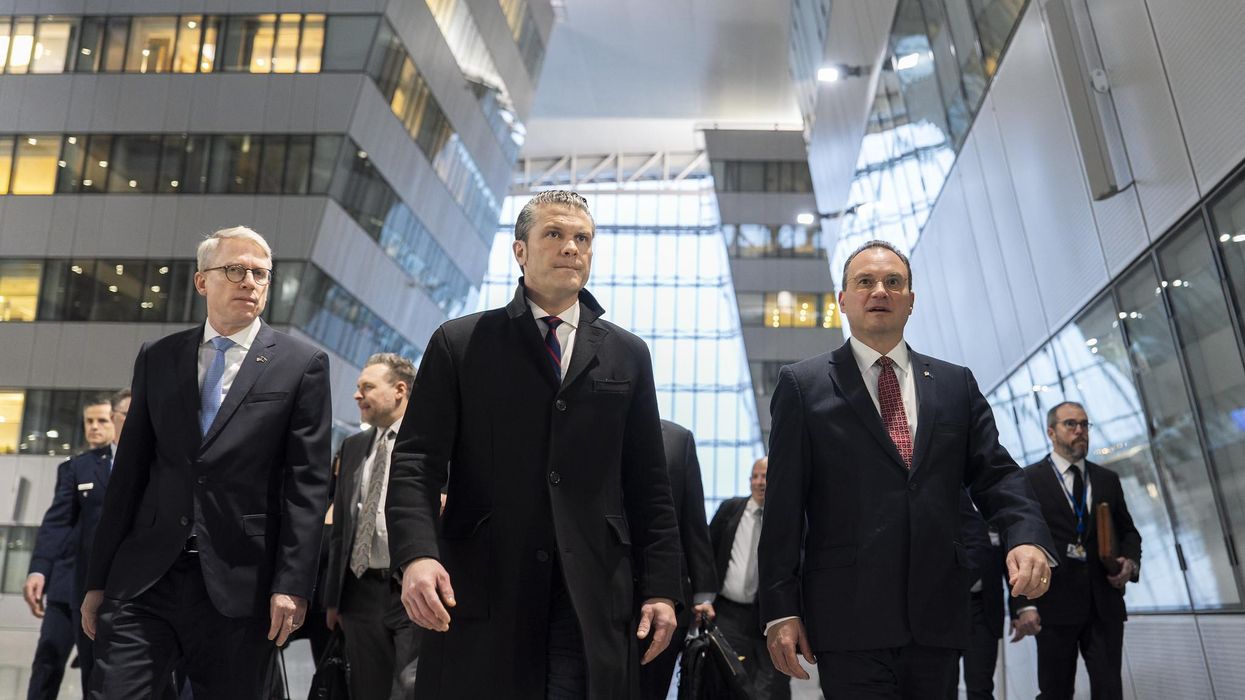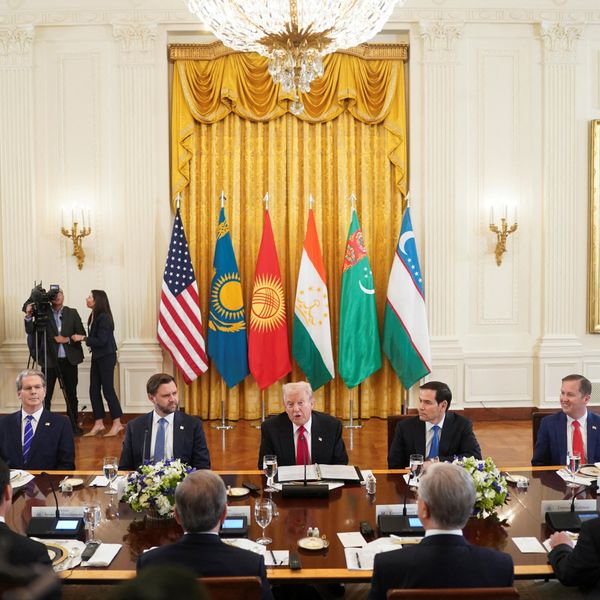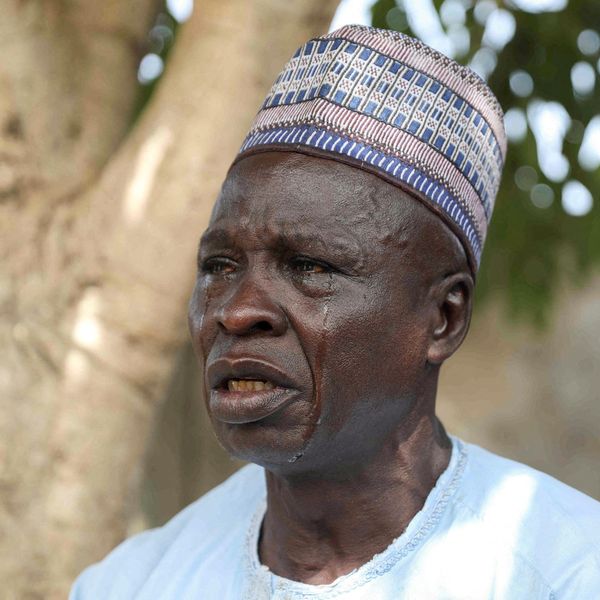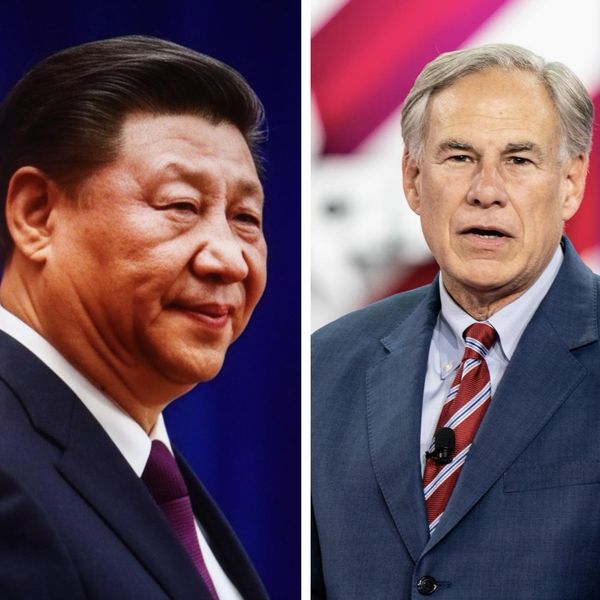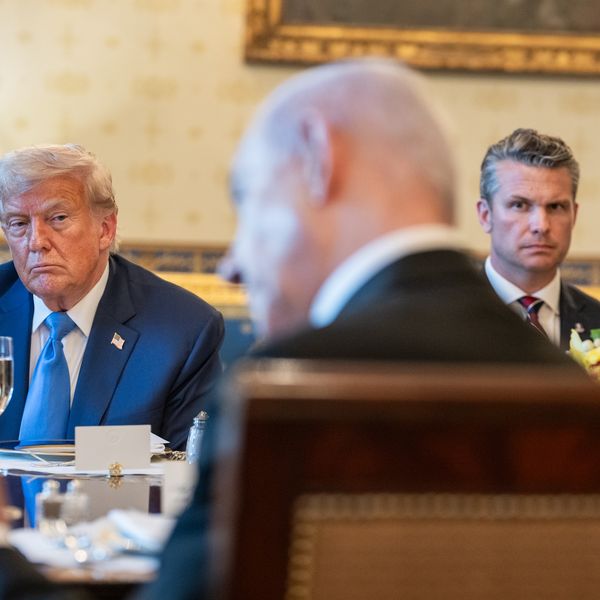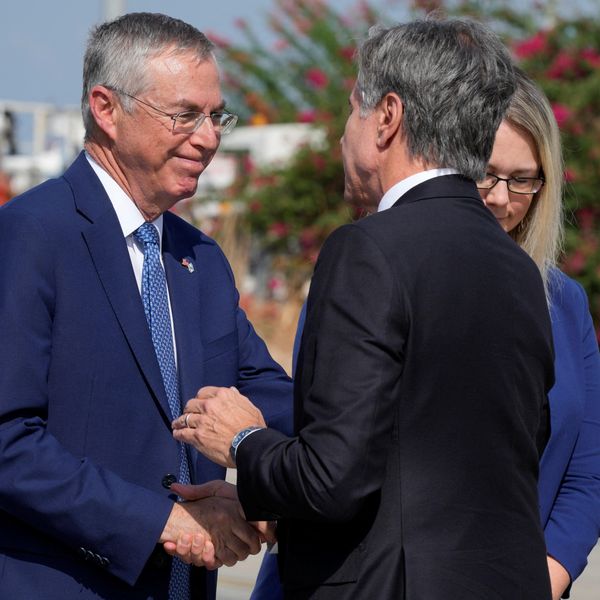An independent South African investigation found “no evidence” that Pretoria loaded arms onto a Russian ship when it docked in Simon’s Town late last year, contradicting accusations made by the U.S. ambassador to South Africa in May.
“When all matters are considered, none of the allegations made about the supply of weapons to Russia have been proven to be true,” South African President Cyril Ramaphosa said, adding that the accusation “had a most damaging effect on our currency, our economy, and our standing in the world.”
Ramaphosa’s fiery remarks highlighted the extent to which the allegations have soured U.S.-South Africa ties, which were already badly strained following Russia’s invasion of Ukraine. Pretoria has frustrated Washington by refusing to isolate the Kremlin and continuing to work with the Russian military, while South Africa has grown increasingly indignant at the idea that it must toe the U.S. line on the conflict.
But the results of the inquiry, which was led by an apparently trustworthy former judge, provide a chance to soothe growing tensions between the two countries. The State Department took a step in that direction Tuesday when spokesperson Vedant Patel said the U.S. appreciates “the seriousness with which the panel of inquiry in South Africa undertook to investigate” the incident, though he stopped short of endorsing the findings completely.
For South Africa, the motivation to improve relations with the U.S. is clear. While the country’s ruling party has long insisted on neutrality in great power disputes, Pretoria has a much closer economic relationship with Washington than it does with Moscow.
That relationship relies in no small part on American goodwill since much of the countries’ bilateral trade is underpinned by the African Growth and Opportunity Act, which allows South Africa to export certain goods to the U.S. without tariffs. Congress will have to decide in 2025 whether Pretoria gets to stay in the program.
But a drop in tensions could also have big upsides for the U.S. as it navigates choppy geopolitical waters ahead. Washington’s insistence that other countries toe its line on the war has created a surge of frustration among leaders in the Global South, many of whom evince little interest in choosing a side in great power disputes. This is perhaps one reason that so many states now seek to join BRICS, a geopolitical grouping focused on economic independence from the West and led by Brazil, Russia, India, China and South Africa.
By papering over issues with South Africa, the United States could build a roadmap for improving relations with the Global South more broadly.
Improved relations with South Africa could also provide a boost to efforts to end the war in Ukraine, which has largely been locked into a bloody stalemate in recent months. As Philani Mthembu of the Institute for Global Dialogue recently argued, Ukraine and Russia have been fighting a second war for hearts and minds in Africa, which “may leave the doors in Kyiv and Moscow open to further dialogue” with African leaders pushing for a peace deal.
“The African peace initiative may thus not be the main negotiation process that resolves questions such as the future of the European security architecture, but it can still play an important role in focussing the world’s attention on dialogue instead of further military escalation,” Mthembu wrote. If the United States chose to quietly endorse this approach, it could help build momentum toward a peace deal, no matter how improbable such a result seems today.
Ramaphosa and President Joe Biden will have a chance to start mending ties this weekend at the G20 summit in New Delhi, India. Though progress on Ukraine is likely to be limited, Biden has reportedly endorsed the African Union’s bid to become a full member of the G20, helping to fulfill a long-time South African goal. The move suggests that, public differences aside, the U.S. may finally be ready to bury the hatchet.In other diplomatic news related to the war in Ukraine:
— Turkish President Recep Tayyip Erdogan said he expects that the Black Sea Grain Initiative will be revived “in a short time” following meetings with Russian President Vladimir Putin, according to CNBC. Putin, who tore up the deal in July, told reporters that he would only rejoin the agreement if provisions related to the export of Russian agricultural products are “fully implemented.”
— On Wednesday, Secretary of State Antony Blinken took a surprise trip to Kyiv, where he announced a new tranche of aid for Ukraine and batted down accusations that the Ukrainian counteroffensive has failed to make meaningful progress, according to the New York Times. Blinken also sought to tamp down concerns that a series of corruption scandals in Ukraine could affect American support for the country. “We’re engaged in assisting the government of Ukraine on anticorruption efforts and on efforts to ensure accountability and full transparency of all the assistance we’re providing, as well as the security of U.S.-provided defense articles and technologies,” he said.
— Western officials are pushing the United Arab Emirates to stop allowing Russia to avoid sanctions by purchasing dual-use goods, according to the Wall Street Journal. The UAE has reportedly become a prime intermediary for Russian businesses looking to get their hands on Western computer chips and electronics. Notably, Abu Dhabi has not joined sanctions against the Kremlin but has tried to avoid gaining a reputation as a market for illicit goods.
— Robert Fico, the leading candidate in Slovakia’s upcoming elections, is a staunch opponent of aid to Ukraine, raising the prospect that the country could split with fellow NATO allies and European Union members over the conflict, according to the New York Times. Fico’s popularity stems in part from the fact that the Slovakian public remains divided over the conflict, with only 40 percent of the country saying that Russia is solely responsible for the war. Notably, the leftist and former prime minister has said that he would oppose Ukraine joining NATO, preferring instead to end the war by formalizing Kyiv’s status as a buffer between Russia and the West.
U.S. State Department news:
When asked if the U.S. believes a diplomatic resolution of the war is likely, State Department spokesperson Vedant Patel emphasized American support for Ukraine’s peace plan. “The Ukrainians and President [Volodymyr] Zelensky have very clearly laid out a proposal for a just and durable peace and a conclusion to this war,” Patel said. “President Putin and the Russian Federation have continuously not been interested in engaging in these kinds of discussions.”
- Diplomacy Watch: African nations plan peace mission ›
- S. Africa neutral on Ukraine, plans drills with 'friends' Russia & China ›
- Could the war in Ukraine spoil US-South Africa ties? ›

